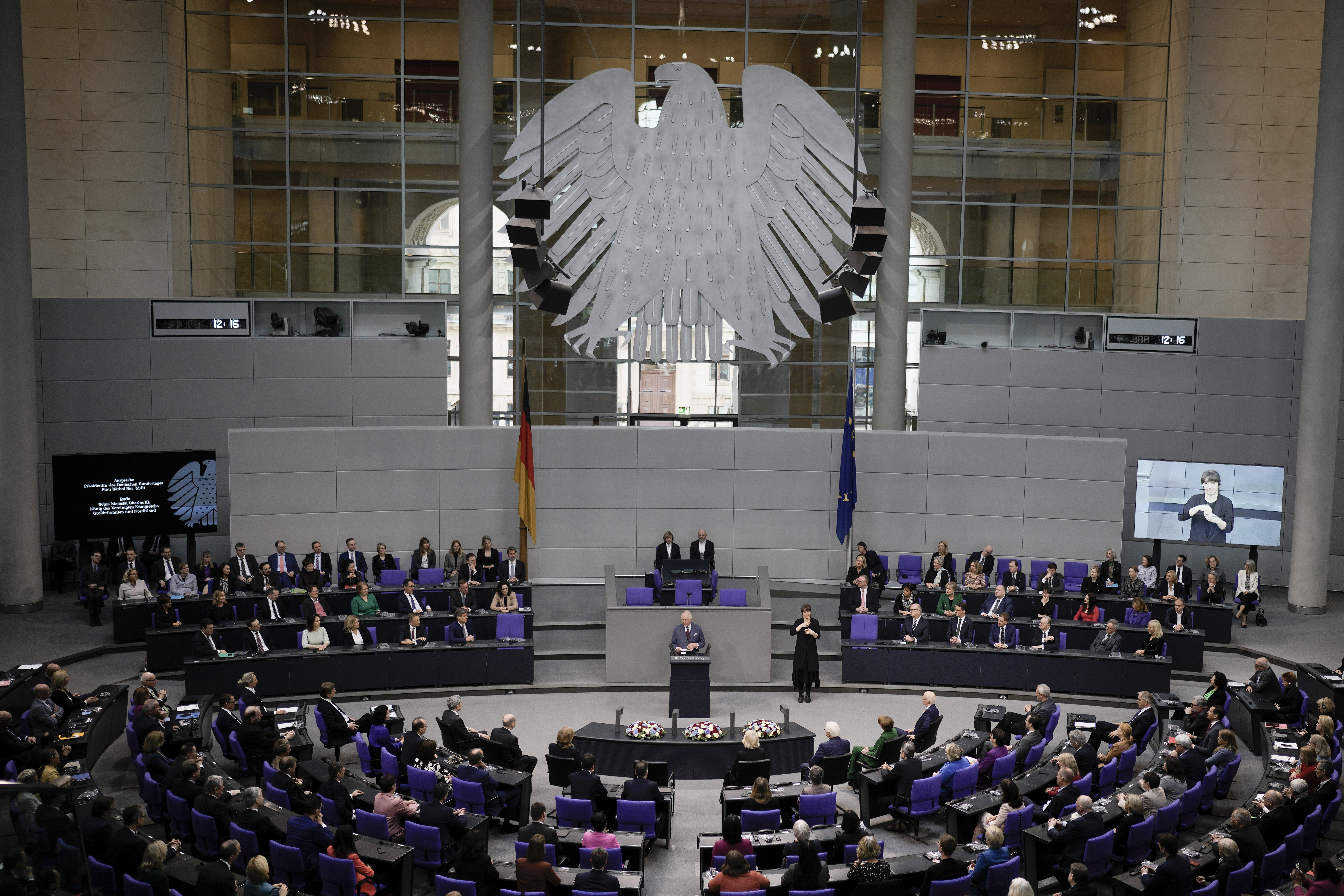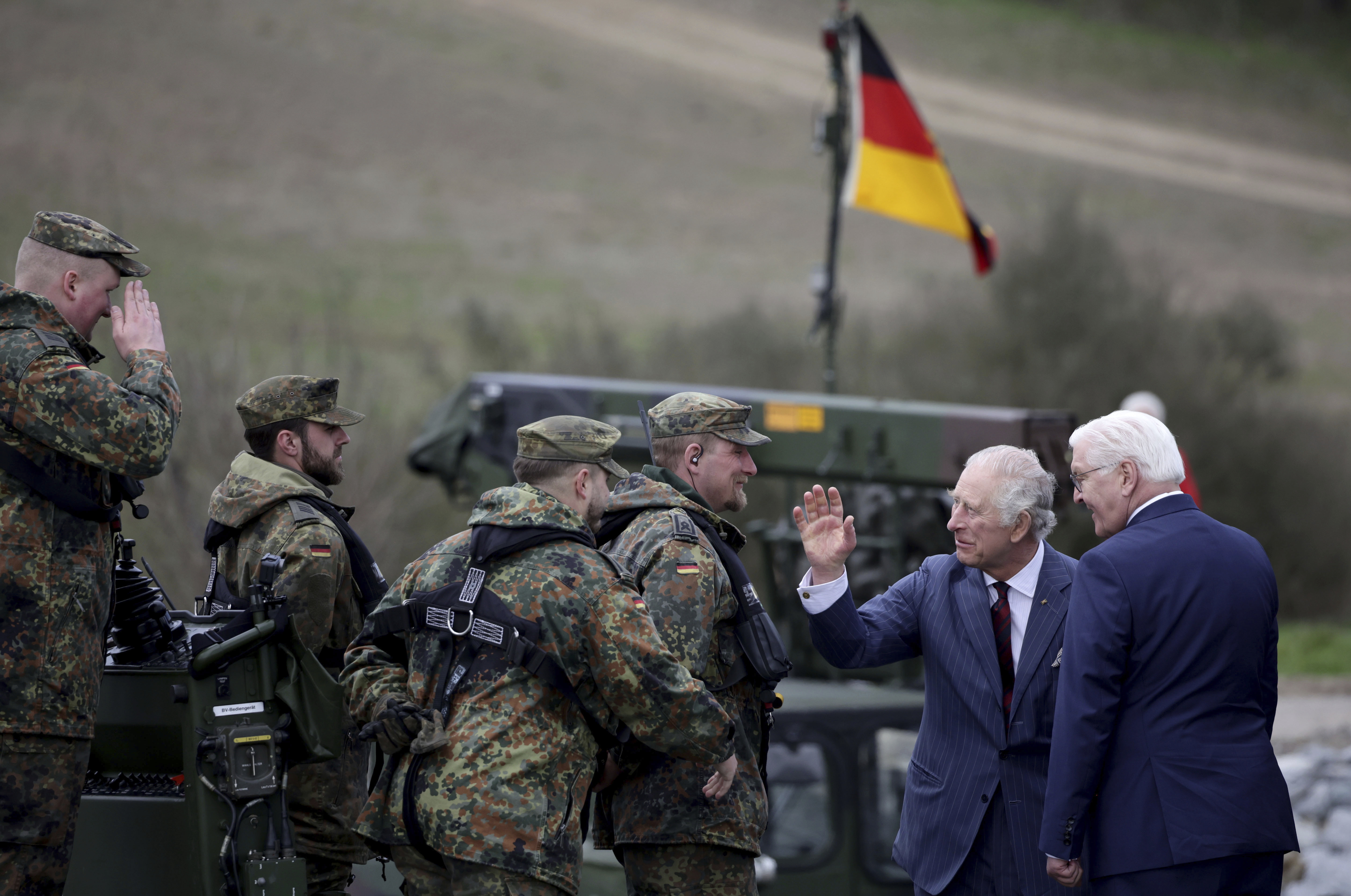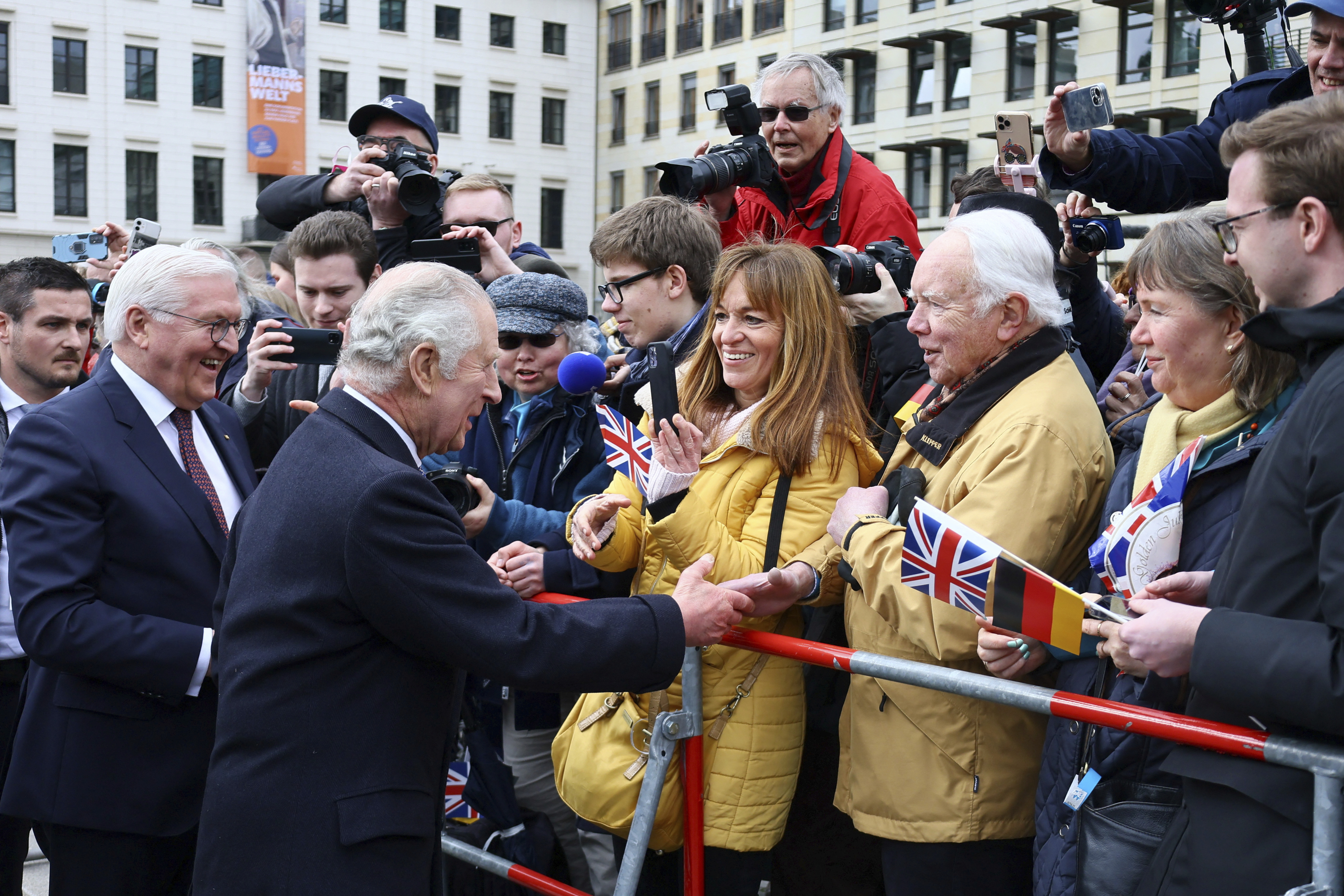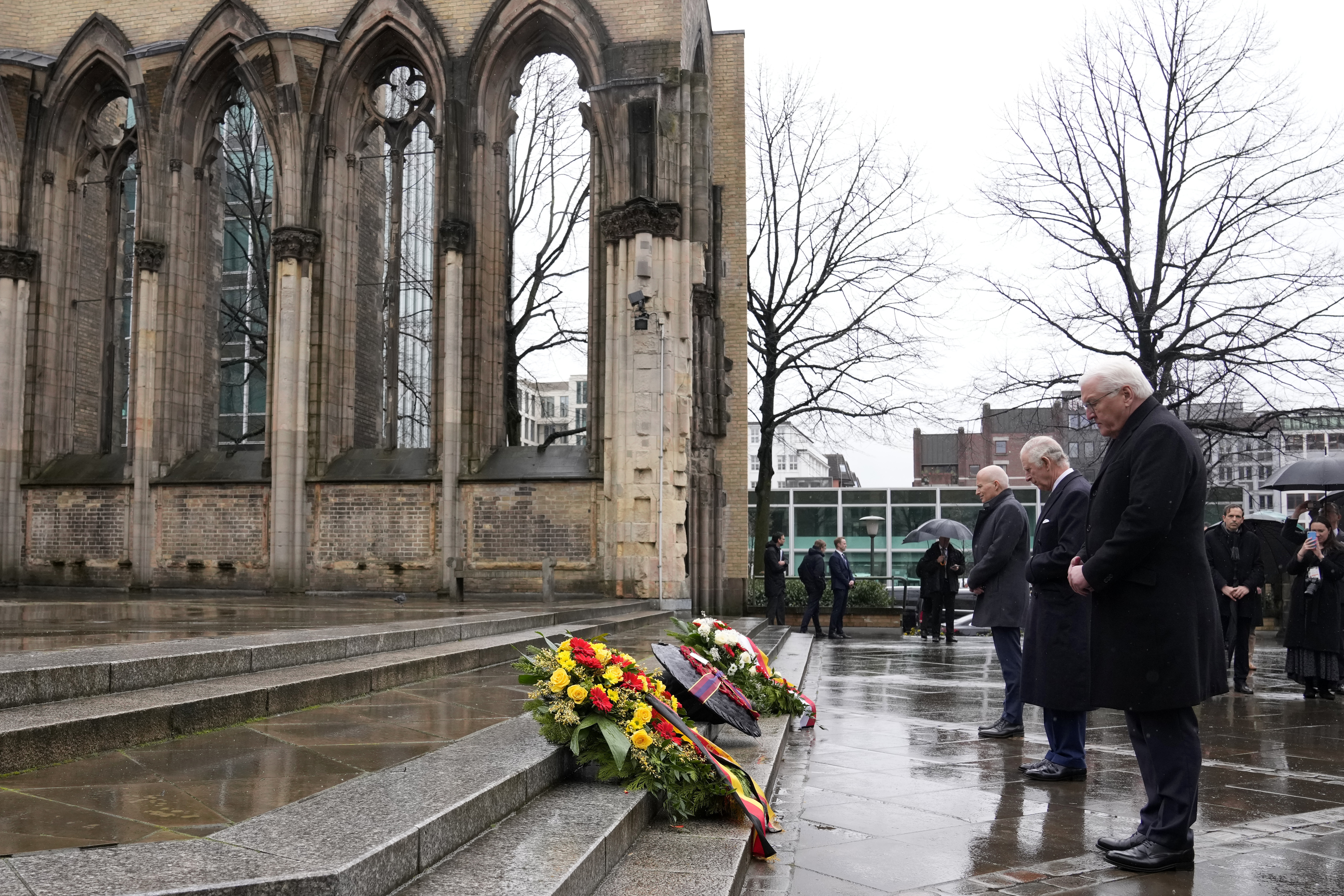
The Charles tour marked a series of early developments that testify to the importance both countries attached to it as London and Berlin attempt to mend relations that soured after the UK left the European Union.
German President Frank-Walter Steinmeier took the unprecedented step of welcoming Charles and Camilla, the queen consort, at the Brandenburg Gate on Wednesday with full military honors. A day later, Charles became the first monarch to address the Bundestag, the German parliament, highlighting the longstanding close ties between the two countries and the importance of future cooperation.
Observers in both Germany and Britain said the trip was a strong signal of the enduring strength of German-British relations.

Jens Zimmermann, a German Social Democrat MP, said Charles sent a “clear message” by addressing parliament partly in German.
“The performance in the Bundestag was very well received,” Zimmerman told The Associated Press. “It was much more political than you might expect. It highlighted the connection between the two states – I think it was very good.”
In his speech, Charles emphasized that London and Berlin had provided significant assistance to Ukraine in its efforts to repel the Russian invasion – praise that was welcomed by the German government, more accustomed to claiming that it was not doing enough to help Kiev. Zimmerman said that Charles thanked the Germans for taking in so many Ukrainians seeking asylum from the war, which could also be seen as an indirect criticism of the British government’s recent anti-refugee policy.
While King Charles cannot legislate or directly influence British policy, the “soft power” of his visit should not be underestimated, Zimmerman said.
Others noted that in the wake of the pandemic’s remote diplomacy, personal visits like Charles’s could help deepen and rekindle relationships between leaders.

“I think as the coronavirus has faded, it has reminded us of the value of face-to-face meetings,” said Bronwen Maddox, executive director of think tank Chatham House.
Charles had originally planned to visit France first, but due to anti-government protests, both governments postponed that part of his trip. The new itinerary focuses on Germany, where Charles has family roots and the royal family has long been a hot topic.
This fascination was evident to the German public in the speeches of the British monarch. Despite the wet and cold spring weather, supporters patiently waited to meet Charles and Camilla during their stops in Berlin and Hamburg, a city he believed had a particularly close relationship with Britain due to its long maritime and trade links.

Charles and Camilla also laid a wreath at the ruins of St. Nicholas Church in memory of the more than 30,000 people, mostly German civilians, who died in Operation Gomorrah, the Allied bombing of Hamburg in July 1943. Naval Promenade and Farewell Reception The King’s visit ended on Friday.
Michael Cruz, a pro-business Liberal Democrat MP who, like Zimmerman, is a member of the German-British parliamentary group, said the two countries still have many common economic interests despite Britain’s exit from the EU.

“Our distance has increased because of Brexit,” he said. “That’s why the visit of the British head of state was even more important.”
Kruse expressed the hope shared by many in Germany that London would return to the Group of 27.
“I hope that at some point the British will admit that Brexit was a mistake and come back to the EU,” he said. “The door must always be open. In the meantime, we say: “See you soon, King Charles III.”
Source: Associated Press.
Source: Kathimerini
Anna White is a journalist at 247 News Reel, where she writes on world news and current events. She is known for her insightful analysis and compelling storytelling. Anna’s articles have been widely read and shared, earning her a reputation as a talented and respected journalist. She delivers in-depth and accurate understanding of the world’s most pressing issues.